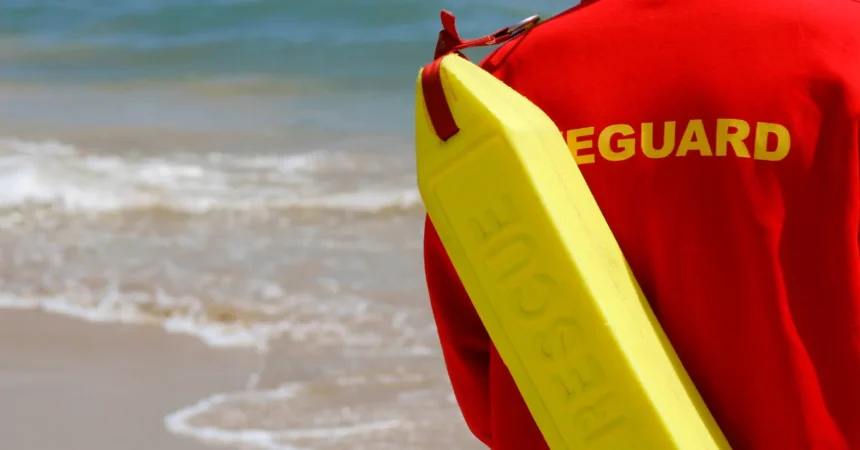Introduction:
The Arabian Sea is currently witnessing significant atmospheric changes, prompting the Pakistan Meteorological Department (PMD) to issue warnings to fishermen and maritime communities along the coastline. As a depression forms and moves towards Oman, concerns regarding safety, fishing activities, and potential impacts on local economies have come to the forefront. This article delves into the details of the current weather situation, its implications for fishermen, and the broader environmental context surrounding these meteorological phenomena.
Understanding the Arabian Sea Depression
The Arabian Sea depression is a weather system characterized by a drop in atmospheric pressure, leading to increased wind speeds and heavy rainfall. Such depressions can develop due to various meteorological factors, including temperature differentials, moisture levels, and prevailing wind patterns. As the system moves closer to Oman, the PMD has raised alarms for those engaged in fishing activities in the region.
The depression is expected to influence the weather patterns not only in Oman but also along the coasts of Pakistan, particularly in areas like Karachi, Gwadar, and other coastal towns. The PMD’s early warning system plays a crucial role in providing timely information to mitigate risks associated with severe weather conditions.
Impacts on Fishermen
Fishermen in the affected regions are particularly vulnerable to the consequences of such weather systems. The PMD has advised them to refrain from venturing out to sea until conditions stabilize. The potential for high winds, rough seas, and heavy rainfall poses significant threats to safety and livelihoods.
1. Safety Concerns: Fishermen are often at risk during such weather events, with rough seas making fishing operations perilous. The PMD’s warning aims to prevent accidents and ensure the safety of those who earn their livelihood from the sea.
2. Economic Implications: The fishing industry is a vital component of the economy in coastal areas of Pakistan. A disruption in fishing activities can lead to economic losses for fishermen and their families, affecting local markets that rely on fresh catches.
3. Long-term Effects: Extended periods of adverse weather can have lasting effects on fish populations and ecosystems. If fishermen are unable to operate for prolonged periods, it could lead to fluctuations in fish stocks, affecting future catches and sustainability.
Here are four additional paragraphs expanding on the impacts of the Arabian Sea depression on fishermen, numbered as requested:
4. Psychological Impact: The uncertainties brought by severe weather can take a toll on the mental health of fishermen and their families. Prolonged periods without fishing not only affect their income but also create anxiety about meeting daily needs and supporting their families. The stress of financial instability can lead to increased mental health issues, affecting both physical and emotional well-being. Community support and mental health resources become essential in such situations to help fishermen cope with the pressures of their changing environment.
5. Increased Operational Costs: As the PMD warns against venturing out during adverse conditions, fishermen may face increased operational costs due to necessary precautions. This includes investing in better equipment, such as life vests and communication devices, to ensure safety during rough weather. Additionally, delays in fishing operations might force fishermen to rely on alternative sources of income or borrow money to cover their daily expenses. These financial burdens can further strain their livelihoods and disrupt the economic stability of their households.
6. Impact on Local Supply Chains: The fishing industry is intertwined with various local supply chains, including processing, distribution, and retail. When fishermen are unable to catch fish due to adverse weather, it creates a ripple effect throughout these supply chains. Local fish markets may face shortages, leading to increased prices and reduced access to fresh seafood for consumers. This disruption can adversely affect not only fishermen but also businesses that rely on seafood as a key component of their operations, such as restaurants and food vendors, ultimately impacting the local economy.
7. Adapting to Climate Change: The Arabian Sea depression serves as a stark reminder of the increasing unpredictability of weather patterns associated with climate change. Fishermen must adapt to these changes by exploring alternative fishing methods, diversifying their catches, or even transitioning to different livelihoods. Continuous education and training programs can equip fishermen with the necessary skills to navigate the changing landscape, ensuring their long-term sustainability. Furthermore, fostering community resilience through cooperative initiatives can enhance their ability to adapt and thrive in an evolving environment.
Government Response
In light of the situation, the government and relevant authorities are urged to take proactive measures to support affected communities. The PMD, along with local government bodies, is expected to coordinate efforts to ensure the safety of fishermen and provide necessary resources during the adverse weather conditions.
1. Awareness Campaigns: Educating fishermen about the risks associated with weather disturbances is crucial. Awareness campaigns can help communities understand the importance of adhering to weather warnings and taking necessary precautions.
2. Emergency Support: The government can consider providing assistance to fishermen whose livelihoods are affected by the depression. This could include financial aid, food supplies, or temporary job opportunities in other sectors to mitigate losses.
3. Monitoring and Forecasting: Enhanced monitoring of weather patterns and effective forecasting can help predict future events and allow fishermen to plan their activities accordingly. Investing in advanced meteorological technologies can improve the accuracy of weather predictions.
Broader Environmental Context
The Arabian Sea is not only significant for local fishing communities but also plays a critical role in the broader environmental context. Understanding the dynamics of the Arabian Sea depression is essential for appreciating the interconnectedness of weather patterns, ocean currents, and ecological balance.
1. Climate Change Impact: Climate change has been a driving factor in the frequency and intensity of extreme weather events across the globe. The Arabian Sea is particularly susceptible to these changes, leading to concerns about the sustainability of marine ecosystems and the livelihoods dependent on them.
2. Ecosystem Disruption: Weather disturbances can disrupt marine ecosystems, affecting fish breeding and feeding patterns. This disruption can lead to imbalances in marine biodiversity, impacting not only fishermen but also local communities relying on other marine resources.
3. Long-term Research Needs: Continued research into the effects of climate change on the Arabian Sea is essential for developing adaptive strategies for local communities. Collaborative efforts between governmental bodies, research institutions, and international organizations can lead to more effective solutions.
Historical Precedents
Historically, the Arabian Sea has experienced similar weather phenomena that have impacted the region. The lessons learned from past events can provide valuable insights into managing current and future challenges associated with weather disturbances.
1. Case Studies: Reviewing past cases of Arabian Sea depressions and cyclones can shed light on their effects on local communities, economies, and marine ecosystems. Analyzing the outcomes of past events can help refine preparedness and response strategies.
2. Community Resilience: Examining how communities have adapted to previous weather-related challenges can highlight resilience strategies that work. Building on these strategies can enhance the ability of fishermen and coastal communities to withstand future disturbances.
3. Policy Development: Policymakers can utilize historical data to formulate more effective policies aimed at disaster preparedness, response, and recovery. Comprehensive policies can ensure that affected communities receive the support they need during adverse weather events.
The recent warnings from the PMD regarding the Arabian Sea depression highlight the need for vigilance and preparedness among fishermen and coastal communities. As the weather system moves towards Oman, it brings with it a host of concerns regarding safety, economic stability, and environmental impacts.
The proactive measures suggested, including awareness campaigns, government support, and enhanced monitoring, are crucial for safeguarding the livelihoods of those affected. Understanding the broader environmental context and historical precedents can provide insights into managing the impacts of such weather events effectively.
As the situation unfolds, collaboration between government agencies, local communities, and researchers will be vital in addressing the challenges posed by the Arabian Sea depression. With the right support and preparedness, fishermen can navigate these turbulent waters and continue to contribute to the economy and cultural heritage of Pakistan.
#ArabianSea #WeatherWarning #Fishermen #PMD #Oman #Pakistan #ClimateChange #MarineEcosystem







